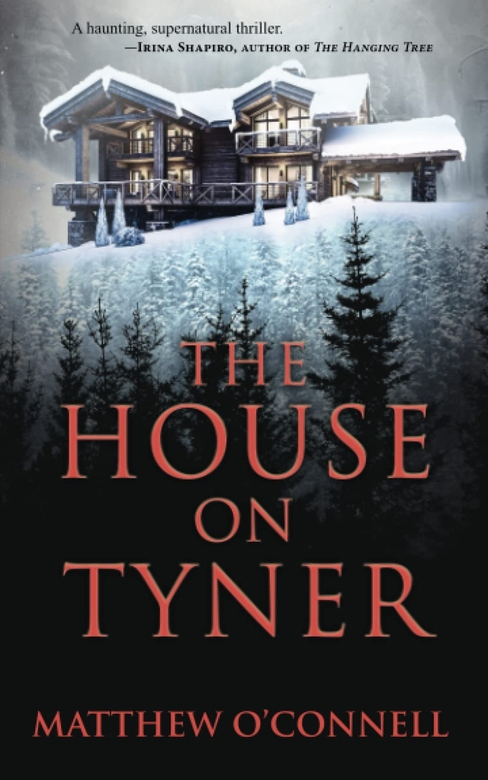
Eerie, surprising, and profoundly emotional, The House on Tyner by Matthew O’Connell is a beautifully written ghost story with the structure of a mystery, plunging the reader into the snowy atmosphere of Nevada’s winters, and into the chilling outcomes of a murder case that challenges the reader’s sense of the rational.
Since losing his wife and children and quitting his baseball career, Jackson retrained as a chef and decided to pursue what once had been his wife’s dream – to leave Napa Valley and open a restaurant on Lake Tahoe. Looking for properties to rent nearby, Jackson stumbles across the perfect house, and it’s a bargain too, but only because the house of his dreams was the stage of a terrible tragedy.
Far from being superstitious, Jackson is thrilled to move in, but in his first long winter, he finds out that a logical approach to life sometimes isn’t enough to deal with a dark history. With the help of the local librarian, Jackson embarks on dangerous a journey to dig into the past of the family whose death shocked Incline Village, and into the possibility that there are things in this world that reason alone can’t explain.
The author’s genuine approach to loss and grief makes The House on Tyner a refreshingly honest and relatable novel, without falling into horror stereotypes of clear-cut good and evil. Instead, O’Connell spins a complex narrative that confronts difficult themes such as violence, generational trauma, and the supernatural, where good and bad are deeply entangled, all the characters are flawed, and not all suffering can be healed. Jackson’s own experience of loss gives the novel yet another layer of depth to the story, separating the novel from horror-driven paranormal fiction.
Jackson acts as a particularly relatable protagonist, who is not so incredulous as to deny what is in front of him, but he is measured and thoughtful throughout, offering a convincing framework to piece together the events in the book, without ever reaching a strict conclusion. The house itself, central to this book, also allows for layering and lyricism, becoming a character of its own, as the house can be read as a symbol of grief, with its architectural features mirroring the conscious and unconscious mind. Similarly, the dreamy, winter-bound landscape echoes the minute intricacy of the story itself.
With a flair for eerie details, O’Connell drives the story forward with a bevy of emotional highs and lows, making the reader gasp, smile, and reflect in equal measure, and even feel inspired to do some research on the events brought forward in the book. While the people who populate these past events have relatively little stage time, and the story could have delved deeper into their own reactions and psychology, their presence permeates the whole book, with their backstories revealed at an engrossing pace.
All told, The House on Tyner is a powerfully written ghost story that manages to be appealingly realistic, while also questioning the boundaries of the tangible world. Giving a poetic side to the enigmatic and haunted, the novel is unique in the paranormal genre.
Book Links
STAR RATING
Design
Content
Editing
Get an Editorial Review | Get Amazon Sales & Reviews | Get Edited | Get Beta Readers | Enter the SPR Book Awards | Other Marketing Services























Leave A Comment